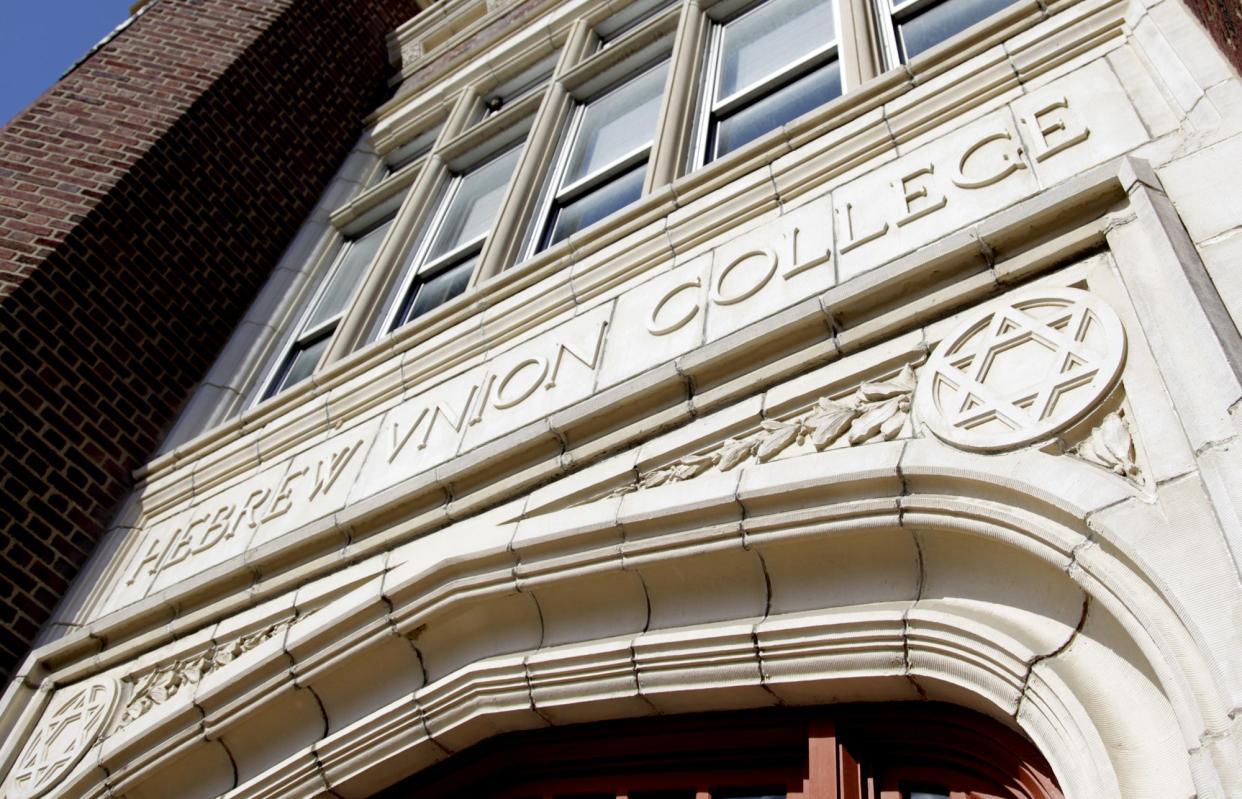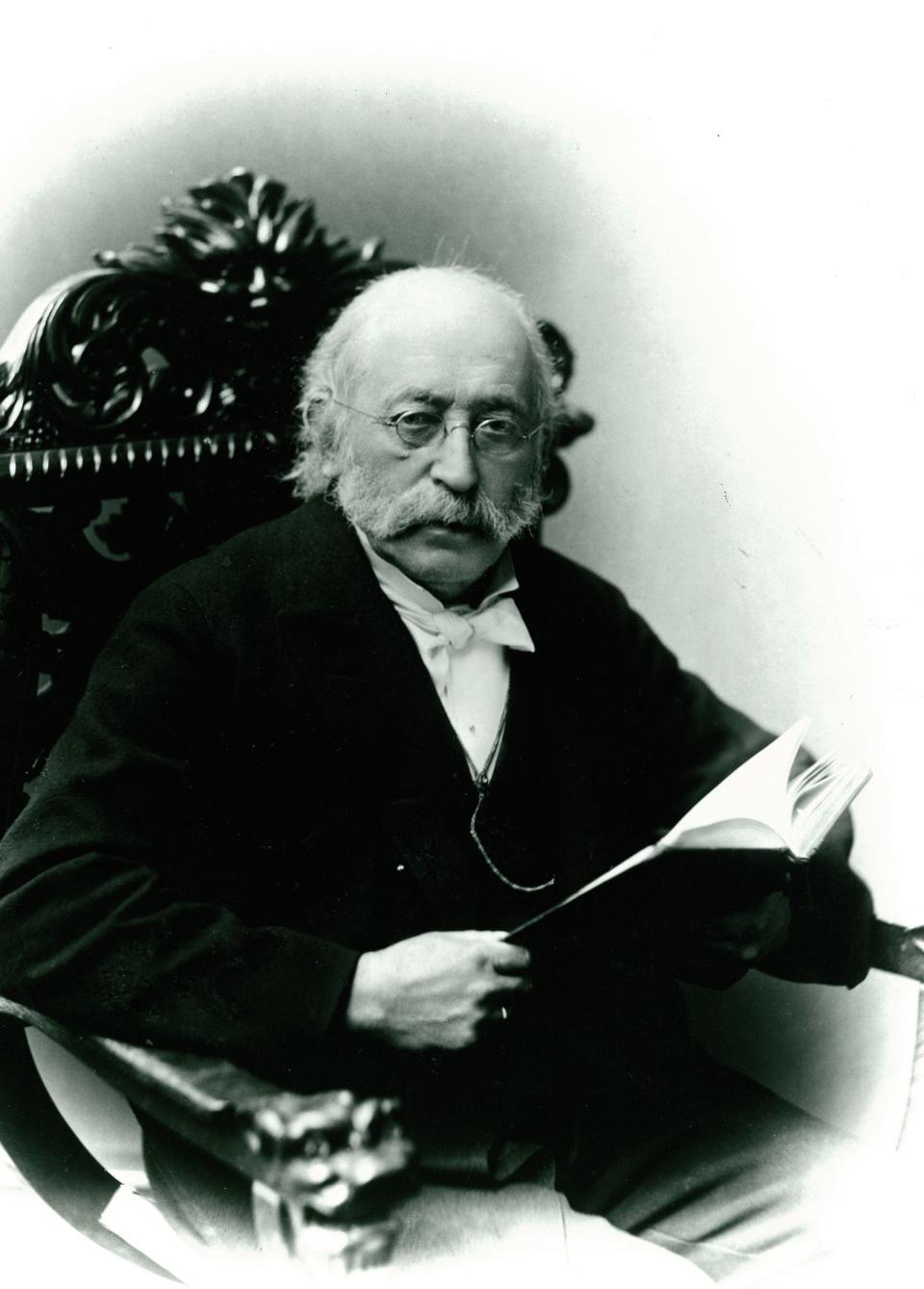Ohio attorney general vows to stop sale of rare books at Hebrew Union College

- Oops!Something went wrong.Please try again later.
Ohio Attorney General Dave Yost took legal action Tuesday to stop the potential sale of rare books from the collection at Hebrew Union College-Jewish Institute of Religion in Cincinnati.
The attorney general asked a Hamilton County judge for a temporary restraining order to prevent any potential sale from the college's Klau Library, which holds more than 3,500 manuscripts and thousands of rare books and ancient texts. A hearing on the matter before Common Pleas Judge Megan Shanahan is set for July 12.
The possibility of a sale involving the library's collection emerged earlier this year when school officials acknowledged they had brought in an independent consultant to evaluate the collection and determine its value.
No sale took place after the consultant, from the British auction house Sotheby's, visited the school and examined at least parts of the collection. But an HUC spokeswoman told The Enquirer on Monday the school "would consider deaccessioning," or removing books from the collection, if some texts were found to be "redundant or not central to our mission."
Yost said Tuesday such an action could run afoul of laws that protect the intent of donors who give money or objects to charitable organizations and other private institutions.
"These sacred texts are invaluable artifacts – religious and cultural treasures," Yost said in a statement. "Their sale would not only betray donor trust but also may violate legal restrictions placed on the gifts."
In his request for a restraining order, Yost argued the college is "violating Ohio law and breaching the charitable trust ... by taking measures to dismantle" the library's collection. The attorney general's office routinely takes on privately-run charities accused of breaking the law, but legal action against major educational or religious institutions, such as HUC, is unusual.
Following Yost's move Tuesday, HUC spokeswoman Patricia Keim said the college has made no plans to sell books or close the library. "We have retained a rare books expert to assess our holdings," she said. "We remain committed to responsible management of the Klau Library and its critical role in the study of Judaism, Jewish history, and Jewish civilization."
Hebrew Union College going through 'a time of strategic change'
Yost's move comes two years after he first said he would consider legal action against HUC. In 2022, when the school announced it was ending its 149-year-old residential rabbinical program as part of a consolidation plan, Yost said his office would investigate whether closing the Cincinnati campus violated the law because it failed to honor the intent of the benefactors who built and supported the school.
Officials at HUC, which also has campuses in Los Angeles, New York and Jerusalem, have said the school has struggled financially for years. When the consolidation was announced in 2022, the college faced a record $8.8 million deficit and rabbinic student enrollment had dropped by 37% over the previous 15 years.
The consolidation announcement raised concerns among staff, alumni and others about HUC's future in Cincinnati. School officials have said only that they intend to maintain a presence in Cincinnati as a research center, but they have not said exactly what that means or how many HUC staff and faculty would remain.
The possible sale or removal of books from the Klau Library collection raised more alarms among those close to the school.
"A number of us are concerned that this real jewel could have its luster diminished," said Michael Meyer, an emeritus professor of Jewish history at HUC. "It wouldn't only be a loss for the community at HUC. It would be a loss for the Jewish people."
Keim said the college is going through "a time of strategic change" but its leaders remain committed to the institution, its archive and its collections.
"We are currently asking a broad set of questions about how to best steward these cherished resources of the Jewish People and ensure they serve the widest scholarly community possible," Keim said.
What is Hebrew Union College?
Hebrew Union College was founded in Cincinnati in 1875 by Rabbi Isaac Mayer Wise, the founder of the American Jewish Reform Movement. It is the nation's oldest Jewish seminary and has trained rabbis for all American congregations for almost 150 years.

After its founding, the school trained only rabbis for years. Later, though, it expanded to educate rabbis, cantors, experts in Jewish education and other Jewish professionals.
The library and the collection of rare books and manuscripts has remained an essential part of the school's mission to preserve Jewish tradition and history. The library's collection began with donations from Wise and his family and quickly grew to include thousands more books and manuscripts.
Today, the collection consists of more than a half million printed books, manuscripts, digital images, sound recordings and rare books, including ancient copies of the Talmud and the only known manuscripts that contain both Chinese and Hebrew characters.
If the library's staff is reduced and significant parts of the collection are removed, Meyer said, the library could become little more than a depository.
"This is not just a library," Meyer said. "It's a library of national stature."
In his request for a restraining order, Yost also noted the library's historical and cultural significance. He said his legal standing to take action is based on Ohio laws designed to protect "the integrity of institutional missions," which could include a school's obligation to honor the intent of those who donated money, books and other gifts over the decades.
"A library without its most precious artifacts and texts is like a body without a soul," Yost said. "We are committed to ensuring that these irreplaceable items remain available to the public and are cared for as their donors intended."
Yost's legal brief suggests HUC administrators may have been undermining the library and its ability to raise money for years to justify selling off portions of the collection. He cited reporting by Cincy Jewfolk, a website dedicated to coverage of Jewish issues in Cincinnati, that said HUC attempted to "quietly offload" the Klau Library to the University of Cincinnati and the University of Chicago after slashing its budget.
According to Cincy Jewfolk's reporting, HUC's leaders made financial decisions that "hollowed out" the Cincinnati campus in recent years, resulting in the decision to end the rabbinical program and, later, to consider selling rare books from its collection.
Yost said the library's former director, Yoram Bitton, resigned earlier this year after being pressured to sell parts of the collection. Bitton, who now works for the Library of Congress, did not respond to requests for an interview.
Yost said HUC officials did not comply when his investigators asked for records related to Sotheby's, the library's budget and communications among school officials about the possible sale of books.
He said he took action Tuesday because of the threat of "imminent violations of Ohio law."
This article originally appeared on Cincinnati Enquirer: Hebrew Union College faces legal action to stop rare book sale

